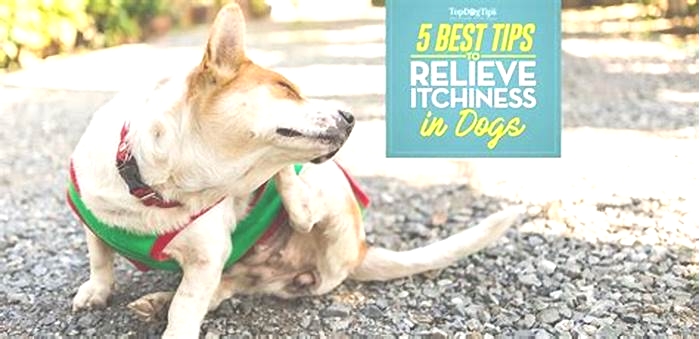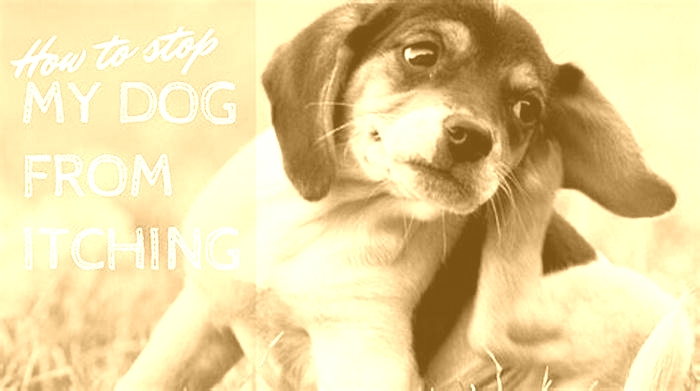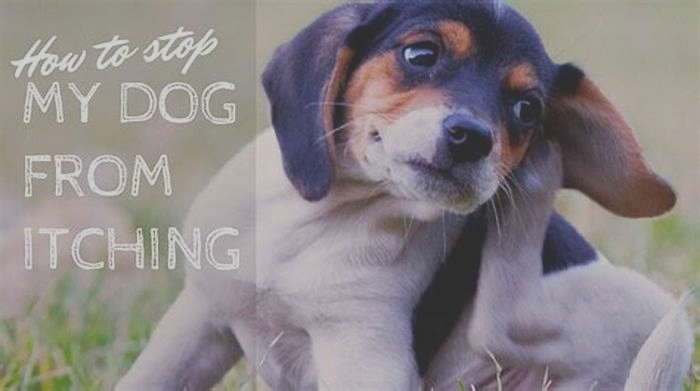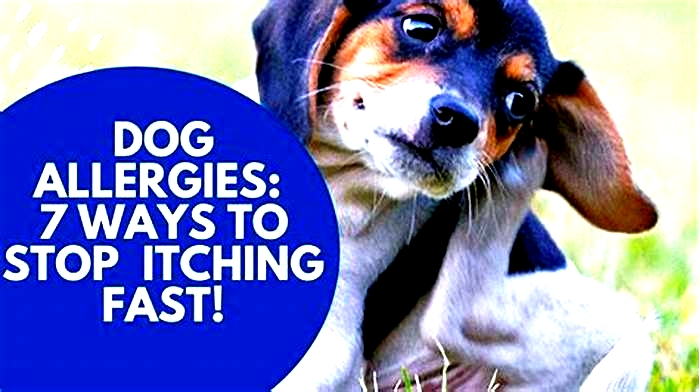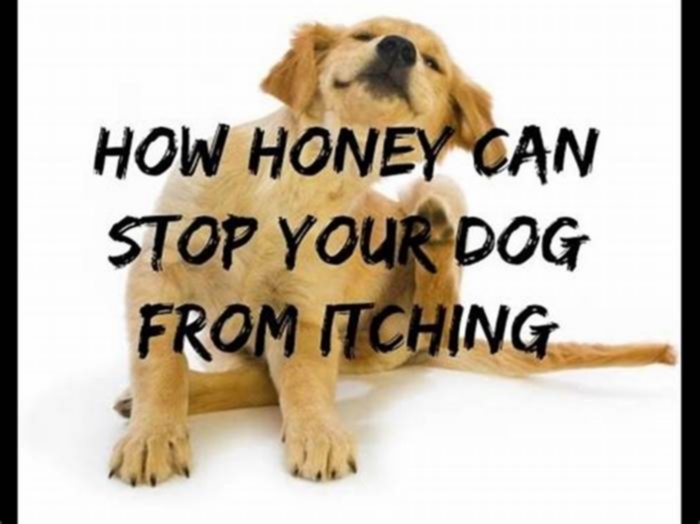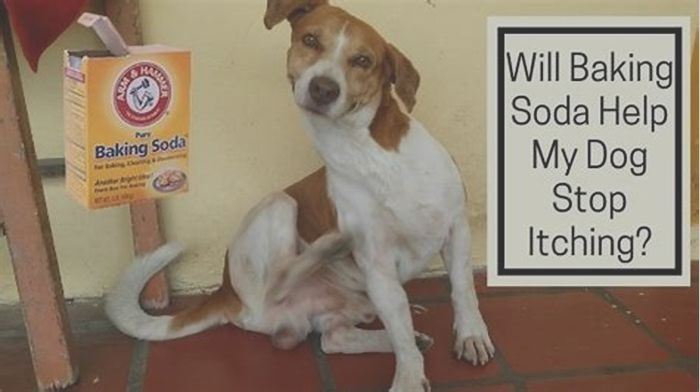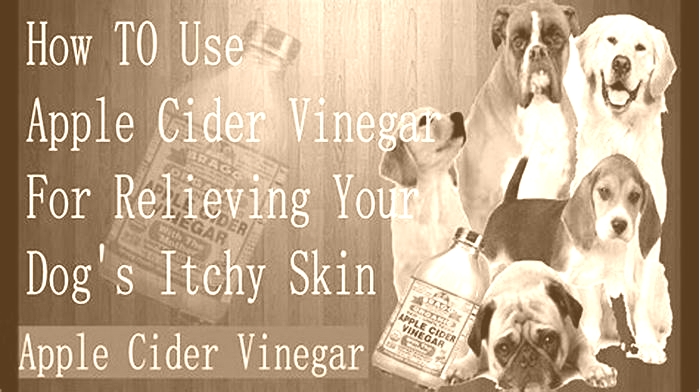How do I stop my dog from itching at night
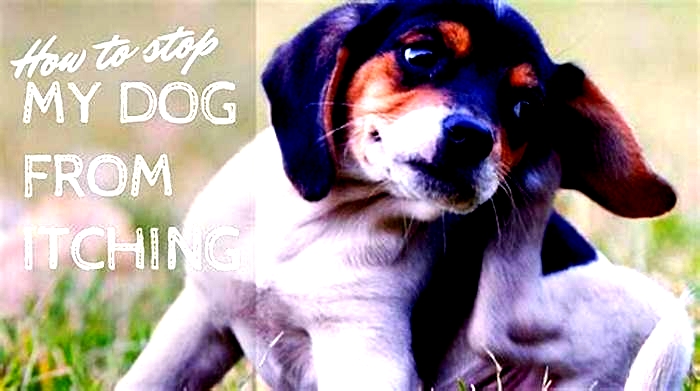
Why Does My Dog Itch At Night? 5 causes
Does your dog keep itching and licking himself at night, and have you been wondering why and what you can do about it?
This post would enlighten you on why your dog might be scratching and licking itself at night and how you can help your dog get better.
So, why does my dog itch at night?Dry skin is one of the common causes of nighttime scratching in dogs. When the temperature drops low at night or theres low air humidity, your dogs chances of having dry skin increases which often leads to itching. Other reasons include parasites, allergy triggers etc.
Why does my dog itch at night?

The fact is that there are so many factors that could be causing your dog to be itchy at night; hence the key is to carefully sieve out the causes that least apply to your dogs situation to pinpoint the culprit. The source might be any or a combination of the reasons listed below:
1. Dry skin:
Dry skin on dogs can be caused by weather changes, such as low air humidity or freezing weather. It could also result from a lack of adequate nutrition in your dogs diet, mainly from a deficiency in essential fatty acids, vitamins, or proteins.
Your dog might have dry skin due to excessive bathing, especially if you make use of ashampoo that strips your dogs coat of its natural oil or if you dont follow the shampoo up with a moisturizing conditioner.
Your dog might be itchy at night because its suffering from dry skin. Dry skin on dogs always results in a dull-looking coat and a flakey dry skin. In extreme cases could result inexcessive hair loss, redness of the skin, andan offensive odorfrom your dogs skin.
If you suspect your dog is suffering from dry skin, you might want to check out your dogs diet if it contains all the essential nutrients required to develop healthy skin and coat.
You should also ensure that your dogs shampoo isnt too harsh; this is why most professionals advise against using human shampoo for your pets as the P.H of regular human shampoo is not appropriate for your dogs skin. You might want to contact your veterinarian if you suspect your dog has dry skin or if you do not know the source of its dry skin.
2. Parasites:
This is another common cause of dogs nighttime itching.Bugs,ticks, andfleasfeed on dogs blood, causing them extreme discomfort; they also carry pathogenic microorganisms that cause diseases.If there are bugs on his bed or yours, this may be the cause since hes most likely to lay on the bed at night.
Check your dogs coat for any visible signs of these parasites. You can make use of a flea comb as you carefully and thoroughly search through your dogs entire body.
It would be best if you were on the lookout for ticks, fleas, flea dirt(they appear as brown or reddish specks), and flea eggs (they appear as white specks). Parasites like fleas and ticks are usually common during warmer seasons, so you might want to take extra precautions during such times.
3. Anxiety:
Your dog might be itching at night because it is feeling anxious or overly stressed. Anxiety induced itching is a compulsive behavior that can lead to inflammation of the skin when done excessively. An excellent way to give your dog relief is to tackle what might be causing your dog to feel stressed and anxious.
Perhaps, you just moved into a new home? Or you just got a new pet, or you no longer take your dog on its occasional exercises and walks to the park. Knowing what is causing this reaction in your dog is a step closer to helping your dog get better.
4. Hormonal problems:
Hormonal imbalance is a common cause and usually comes with other symptoms such as changes in the color, distribution, thickness, and consistency of your dogs coat.
It can also drastically affect your dogs weight, appetite, and activities. Your dogs body may be producing excess cortisol hormone or might not be synthesizing sufficient thyroid hormone resulting in your dog itching and scratching at night.
Contacting a vet is essential if your dog is suffering from hormonal imbalance to inform you about the therapy and the supplements that would be appropriate for your dogs condition.
5. Allergic reactions:
Your dog might be itching at night due toallergies hes reacting to, especially if he is only inside at night. Allergies might be induced by substances in the environment, such as mold, pollen, or dust.
They can also be triggered by food or flea bites. Your dog might be suffering from skin allergies, also known as allergic dermatitis. Did you incorporate anything new into your dogs diet plan? Your dogs body system might be intolerant and sensitive to some food such as wheat, beef, eggs, soy, chicken, or milk.
Some dogs are also allergic to flea saliva, which might be introduced to their system from a flea bite. If you believe your dog is suffering from an allergic reaction, then you might want to contact your local veterinarian for allergy testing to determine the source of your dogs allergic reaction and to administer the appropriate treatment.
How can I relieve my dogs itching at nights
Because there are so many reasons to consider when a dog exhibits nighttime itching, it is always a good decision to rule out medical conditions first with your vet when such behavior is noticed. If you discover that your dog itches itself excessively at night, you can do the following to get your dog to stop depending on the particular cause.
1. Eliminate your dogs anxiety: If your dog itching itself at night is a result of anxiety, you might want to help your dog get over the feeling. The best way to treat anxiety is to speak to a professional veterinarian, as they will help you determine the trigger and help provide solutions best suited for your dogs condition.
2. Please get rid of parasites:There are several methods available for getting rid of fleas, tick, and parasites that may have found their way to your dogs coat and skin such as spot-on treatments, tick dip, tick collars, oral treatments, tick sprays, medicated powders and even shampoos that contain medicated ingredients specific for fighting against parasites.
The moment you discover that the cause is from parasite infestation, then you should take out all your dogs bedding and wash in hot water. Take your dog outside and give him a good bath while brushing his fur with a flea comb. It is also important to place your dog on a regular flea and tick preventive treatment program to prevent future infestations.
3. Watch your dogs diet: if you believe your dog itching itself at nights might be because of something in its food or a new diet plan, then you should take a closer look at your dogs diet. Contacting a veterinarian for a professional food trial would also be the right decision. A food trial is a slow process that involves eliminating any suspicious food in your dogs diet and adding new recipes and observing how your dog reacts to it.
Conclusion
The fact is that your dog itching itself at night might just be driving your dog crazy as much as it affects you. It is your duty as a pet owner to help your dog by finding out the source of discomfort and giving it the help it needs.
It is important to note that you shouldnt give your dog any medication or introduce any new substance to its diet without consulting your vet first. I hope you have known about this topic: Why Does My Dog Itch At Night?
Related Posts:
Read More: Why Does My Dog Open His Mouth When I Pet Him? 7 Reasons
Read More: Why Does My Dog Keep Sniffing My Legs: 5 Common Reasons
Read More: Why Does My Dog Bite Me In The Morning? 2 Way To safe From
Read More: Why Are My Dogs Balls Black? Best Number 1 Answer
Read More: Why Do Dogs Like Peanut Butter?
Read More: Why Does My Dog Nibble My Ear? 10 Reasons
Read More: Why Does My Dog Move Its Bed Around?
Read More: Why Does My Dog Bring Me His Food?
Read More: Why Does My Dog Lay His Head Over My Neck? 7 Reasons
Read More: Why Does My Dog Sit On My Chest When I Lay Down?
Why is My Dog Itching So Much? 5 Possible Reasons
Dog itching, or pruritus, is a condition that affects many pups throughout their lives. While most cases are easily treatable, itchiness can also be a sign of more serious issues, including an allergy or infection.
It can be stressful and painful, so for your dogs well-being, its best to take a proactive approach to treatment. That means keeping a close eye on your pup for signs of itching, getting prompt treatment, and taking steps to prevent common causes of itchiness.
If you are wondering if your dog is showing signs of allergic itching, take the quiz below.
In this article, we will review the top 5 causes of dog itching, how to prevent itching, and how to treat itching that is already causing your pup discomfort.
1. Environmental Allergies
Environmental allergies are one of the most common causes of itching in dogs. Just like humans, dogs can suffer from allergies to pollen, dust mites, or mold. This may cause seasonal itching or, depending on the allergen, could affect your dog year-round. Pups may develop a condition called atopy, which is a medical term for irritated skin caused by inhaling allergens like pollen.
Dogs suffering from seasonal allergies might respond to injections designed to expose them to allergens gradually. Allergy desensitization injections could potentially help your dog acclimate to the allergen and reduce symptoms over time.
2. Food Allergies
Dogs may also suffer from food allergies or dietary intolerances. Some dogs are intolerant or allergic to chicken, beef, pork, or other ingredients commonly found in dog food. If your pup is suffering from an allergic food reaction, this may present as a rash, hives, or ear infections.
Hypoallergenic dog food may help to relieve symptoms if you suspect that your dog is suffering from a food allergy. An elimination diet over a period of several weeks in combination with allergy testing, is used by veterinarians to diagnose the root of the allergies.
During a nutritional consultation, your veterinarian will be able to recommend foods for your dog to try to prevent future reactions.
3. Flea Allergies
Flea bites and flea bite allergies are common causes of itchiness in dogs. Fleas typically bite the areas they can access most easily and areas more sheltered from their hosts - your dogs hind legs and rear - so make sure to inspect those areas carefully (although fleas can bite anywhere).
Treatment for fleas is easy and stress-free and can be done with a simple flea shampoo and oral or topical preventatives. It is important to remember that many flea shampoos or rinses will only treat the fleas on your dog at that time and will not prevent further fleas from biting. You will also want to thoroughly clean your dogs toys, blankets, bed, and any other areas of the home where they typically spend time, to ensure that no other fleas or flea eggs are present in your home.
If flea allergies or bites go unnoticed and untreated, they can develop into flea allergy dermatitis, an allergic reaction causing severe pain and/or itching. Its best to have your dog evaluated and treated by a veterinary professional before their condition reaches that level of distress.
4. Contact Dermatitis
Contact dermatitis is a condition that develops from exposure to or direct touching of common household items like cleaning products, bath products, plants (including grasses), and insecticides. If your dog develops contact dermatitis, they will typically itch or develop a rash in the specific area that touched the allergen.
If your dog is suffering from contact dermatitis, they may develop skin infections, including pyoderma, a bacterial infection that results from excessive scratching. If left untreated, complications from itching can cause your dog severe distress and lead to additional skin problems.
5. Insect Bites or Sarcoptic Mange
Aside from flea bites, other insect bites can also cause serious irritation to your pups skin. They may develop sarcoptic mange, a condition caused by mites that leads to inflammation and severe itching.
If your dog is scratching, biting, or licking one area of their body excessively, they may be dealing with irritation from an insect bite. To proactively manage irritation, regularly inspect their body and remove any insects that you find.
If you do notice your dog itching or scratching, their discomfort may be managed with veterinary approved topical treatments like shampoos, ointments, or prescription topical steroids to treat their itching.
Treatment for Itchy Skin on Dogs
Itchy skin can cause extreme discomfort to your pet, so treating it quickly and effectively is essential. While there are home remedies that may help relieve some or all of their pain, I recommend having your dog evaluated by a licensed veterinarian before beginning any treatment.
An experienced veterinarian will be able to offer guidance on home treatment options or prescribe products or medications that will relieve your pups symptoms. Before beginning any course of treatment, a consultation with a vet is strongly recommended.
Once we have identified that your dog is suffering from itchy skin, we will pinpoint the source of their discomfort.
- If they are dealing with flea bites, a flea shampoo in combination with a long lasting preventative may be helpful.
- For an allergic reaction, antihistamines may manage discomfort or allergen desensitization shots may reduce the severity of their reactions.
- Extremely itchy dogs may also benefit from prescriptions such as Apoquel or Cytopoint to quickly relieve symptoms.
Diagnosis may be as simple as scheduling a wellness exam, but sometimes, your dog may require additional testing, including skin scrapings or allergy testing. No matter the cause, we will thoroughly evaluate your pet to determine what is causing their itchiness and develop a plan to resolve their discomfort.
When to Seek Guidance From a Vet
If you suspect your pet is suffering from allergies, seeking professional advice from a qualified veterinarian is the best course of action to relieve symptoms. Dogs may not always show symptoms, so having them evaluated by a qualified professional can rule out potential causes and outline the best treatment plan.
Especially if your dog is experiencing severe symptoms, including excessive scratching, licking, chewing, or recurring ear infections, its important to contact a qualified veterinarian to seek help with reducing their irritation.
Conclusion
Itching can be a painful condition for dogs, even if they arent able to tell you whats wrong. Paying close attention to your pups behavior and conducting regular skin checks is a great way to stay on top of their health and prevent symptoms from occurring altogether. If your pet is already suffering from irritation, having them thoroughly evaluated by one of our expert veterinarians ensures theyll quickly receive the care they need to find comfort.
If youre concerned that your pup is suffering from itchiness or irritation, contact us today for an evaluation.
Frequently Asked Questions
What remedies can I get to stop my dog itching?
Itchy dogs may benefit from various treatments depending on the cause and severity of their itching. I always recommend having an itchy dog evaluated by a veterinarian for the best line of treatment. Dogs may find relief at home from antihistamine creams, flea shampoos, or preventatives to combat insect bites.
Can I give my dog Benadryl for itchy skin?
Benadryl is safe for dogs to take as long as they are given an appropriate dosage. Before giving your dog an oral antihistamine, consult a veterinarian to confirm the correct dosage.
Can I use an anti-itch cream on my dog?
Absolutely. Topical anti-itch creams can be beneficial for relieving symptoms of itchy skin in dogs. Depending on the needs of your pup, an over-the-counter or prescription cream may be recommended. Do not let your dog lick the cream after application and if you are reaching for a steroid cream, consult a veterinarian to ensure its safety.
Why is my dog's itching worse at night?
Dogs may become more itchy at night due to environmental factors like their skin drying out or additional exposure to irritants like dust or cleaning products. If your pup is struggling with nighttime itchiness, let us know, and well be able to recommend the best treatment option to relieve their symptoms.
How do I prevent my dog from developing itchy skin?
Preventative care like regular grooming, topical or oral flea preventatives, worm treatments, maintaining regular hygiene, promoting a healthy diet, and regularly checking for insect bites and skin conditions will help keep your dogs skin healthy. Any issues will be noticed quickly and can then be addressed by a qualified veterinarian to keep your dog itch-free and comfortable.

